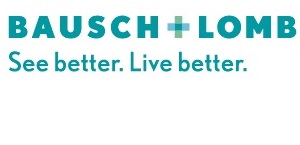
You invest in many things. You invest in your education, your home, a new car. You might even invest in the stock market or by purchasing your own practice. Some of these investments will do well and others…maybe not so well.
We’ve discussed it before – that unless you are investing in a classic car that has shown significant appreciation to collectors, your vehicle is not an investment. Your home can be in a similar predicament based on your entry price, repairs needed, and time horizon. I do hope that your education has been a worthwhile investment showing a great return to date!
Today, let’s focus on what most people consider to be investing: the stock market!
Investing in Good Businesses
It probably goes without saying- the best investments are those in businesses you know and understand. Investing in yourself and your practice is, in most cases, a very good investment. By being actively involved in your business you have the capacity to control your future success of the overall investment.
When it comes to investing in other peoples businesses or the public market (stocks or mutual funds as an example), do you take the same approach? Do you look at the business in detail? Do you analyze their financials? Do you interview the key decision makers? Do you review the mergers and acquisitions and expansion policies?
And what makes a good business ‘good’?
Definition of a Good Business
Just like in making your decision to purchase into an optometry practice, making investment decisions in the private and public markets should be based on the same sound principles.
Does the business make more money than it spends? Does the business have significant competition risk? Are you getting in for a good price? You wouldn’t buy an optometric practice that ran a deficit every year and held significant debt, would you?
Financial Capacity
Market price is one thing, but it doesn’t tell you the profitability of a business. It tells you what someone is currently willing to pay for the business. And because the vast majority of people don’t buy stocks based on sound business principles, these offers can be low or outrageously high.
What does it mean for a business to spend less than it earns? First off, the business needs to create revenue in excess of their expenses. Sounds simple enough on the surface until we take a deeper look. Does the business have excess profits to continue to meet their debt obligations? Are they reinvesting in themselves to continue to grow and expand? And as an owner, are they making enough money to pay you a piece of the rewards of ownership? Personally, If I’m taking on the risk of owning a business, any business, I want to get paid along the way for taking that risk.
Sustainably Profitable
We want businesses that will be here for the long term. True investing involves a longer term buy and hold position. You typically wouldn’t buy a practice with the intention to sell it within six months, would you?
The same is true for your external investments- you want businesses that you know will be around for the long run. You want businesses that won’t disappear if inflation gets too high. Businesses that are ultimately difficult to live without, difficult to replicate, and difficult to compete with. As an example, one of the easiest businesses that fits that definition would be a railroad. Can you imagine someone trying to recreate a railroad across Canada today?
Price Matters
When we look at optometric practices we often hear terms like 3-5 times EBITA (see more about this in our article on How to Read Your Corporate Financial Statement). Similar to EBITA, the stock market uses a Price to Earnings ratio. What price is the company selling for in relation to its earnings? The price is determined by the market price per share multiplied by all shares issued. For example, Shopify was trading at 350.08 price to earnings on June 3, 2022. Is that reasonable? If we apply the principal of time, this is saying that it would take you 350 years to recoup your cost to buy Shopify based on their profits alone. I’m pretty sure I won’t live that long.
Speculating vs Investing
Sticking with our example of Shopify, on March 25, 2022, the stock was trading at just 29.53 price to earnings (PE). If you had bought it then, you would have paid, in my opinion, a far more reasonable price for it as the 2021 year end net income per share was recorded at $23.38.
So how did Shopify get to a 350.08 PE valuation a couple of months later? Someone was willing to pay an inflated price for it under the assumption that they could sell it to someone else at an even higher price.
Let’s face it, we all want to make money investing. However, when you buy a business based on hopes of resale rather than the underlying value of the business, you are really speculating, more commonly known as gambling. This is not sound investing. And remember, for every person you hear about that makes a lot of money on a speculation gone right, you aren’t hearing about all the people who lost that money on their speculation gone wrong.
Sleep is Good
The stock exchange markets have been very volatile this past bit. We’ve seen it happen with Reddit and Gamestop; or Trump and a Tweet. Someone says something and it spread like wildfire. Is that enough to know you are making a sound investment?
If your crazy neighbour is leaning over the fence and making grossly overpriced offers to buy your house one day and low ball offers the next, does this truly indicate the value of your home? Emotional attachment to your home aside, this is just your neighbour being speculative. This can be very unsettling.
If you know that you own good businesses and that you purchased them at good prices and that they are paying you appropriately to own them, it’s a lot easier to sleep at night.
What is your goal?
Investing is designed to save for your future. Your future home down payment, your future dream vacation, your future freedom from work. Investing should be in businesses that can fulfil this requirement.
Personally, I want to see my money earn me money. I want the businesses I own to pay me. I want to be able to sleep at night and not be worried that doubling down on black might make my savings disappear in a single spin of the roulette ball.
Advisory
As your Chief Financial Officer, I’m here to help you understand your money and assist you in making smart decisions about your wealth.
Have more questions than answers? Educating you is just one piece of being your personal CFO that we do. Call (780-261-3098) or email (Roxanne@C3wealthadvisors.ca) today to set up your next conversation with us.
Roxanne Arnal is a former Optometrist, Professional Corporation President, and practice owner. Today she is on a mission Empowering You & Your Wealth with Clarity, Confidence & Control.
These articles are for information purposes only and are not a replacement for personal financial planning. Everyone’s circumstances and needs are different. Errors and Omissions exempt.
Reference for Shopify: https://ycharts.com/companies/SHOP.TO/pe_ratio and Sedar.com

ROXANNE ARNAL,
Optometrist and Certified Financial Planner
Roxanne Arnal graduated from UW School of Optometry in 1995 and is a past-president of the Alberta Association of Optometrists (AAO) and the Canadian Association of Optometry Students (CAOS). She subsequently built a thriving optometric practice in rural Alberta.
Roxanne took the decision in 2012 to leave optometry and become a financial planning professional. She now focuses on providing services to Optometrists with a plan to parlay her unique expertise to help optometric practices and their families across the country meet their goals through astute financial planning and decision making.
Roxanne splits EWO podcast hosting duties with Dr. Glen Chiasson.


















